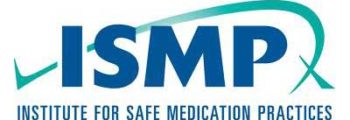Invokamet Lawsuit
Update: FDA Requires Boxed Warning on Amputation Risk with Invokana
May 16, 2017 – Based on the final results of 2 long-term clinical trials, FDA has concluded that type 2 diabetes patients who take Invokana or Invokamet are twice as likely to have their foot or toe amputated. As a result of these findings, the agency is requiring that both medications carry a boxed warning regarding the amputation risk.
What’s the Problem?
The type 2 diabetes medication Invokamet (canagliflozin and metformin) has been linked to an increased risk for serious side effects including diabetic ketoacidosis (DKA), kidney failure, and amputations of the foot, leg and toe.
How Does Invokamet Work?
Invokamet contains canagliflozin, a sodium/glucose cotransporter 2 (SGLT2) inhibitor drug that works with the kidneys to lower A1C, and metformin, which helps decrease the amount of sugar the liver produces and improves the body’s response to insulin. Invokamet has been approved by the U.S. Food & Drug Administration (FDA) as an adjunct to diet and exercise to improve blood glucose levels in patients with type 2 diabetes.
Invokamet Side Effects
Serious side effects of Invokamet may include:
- Diabetic Ketoacidosis (DKA, Diabetic Acidosis, Metabolic Ketoacidosis, Ketoacidosis)
- Heart Attack (Myocardial Infarction or MI)
- Amputations of the foot, leg or toes
- Kidney Failure (Renal Failure)
- Kidney Cancer
- Kidney Infections (Pyelonephritis)
- Kidney Stones
- Bone Fractures
- Bone Abnormalities
- Stroke
- Testicular Cancer
- Urinary Tract Infections (UTIs)
- Severe Dehydration / Fluid Imbalance
- Abnormal Weight Loss
- Hypersensitivity (Allergic Response)
- Blood Infections (Urosepsis)
- Fungal Infections
- And more
Diabetic Ketoacidosis
FDA warned on May 15, 2015, that SGLT2 inhibitor diabetes drugs had been linked to at least 20 cases of diabetic ketoacidosis (DKA) between March 2013 and June 6, 2014. DKA is an acute complication of diabetes resulting from low insulin levels in the blood that causes symptoms including nausea, vomiting, difficulty breathing, abdominal pain and fatigue. All cases of diabetic ketoacidosis in SGLT2 inhibitor users required hospitalization or an emergency room visit to treat, according to the FDA.
ISMP Report on SGLT2 Inhibitors
The Institute for Safe Medication Practices (ISMP) on January 13, 2016, issued its QuarterWatch Report which detailed the following adverse events involving metabolic acidosis with SGLT2 inhibitors in 2015:
- 168 events with Invokana (canagliflozin)
- 80 with Farxiga (dapagliflozin)
- 12 with Jardiance (empagliflozin)
“Despite the lack of long-term data on safety and benefits, these new drugs have moved rapidly into widespread clinical use, according to data from IMS Health,” the report said. “We observed increasing numbers of reports of metabolic acidosis – a potentially life-threatening disorder that has been the focus of two FDA Drug Safety Communications.”
EMA Warning on Ketoacidosis Risk with SGLT2 Inhibitors
The European Medicines Agency (EMA) issued a warning on February 25, 2016, stating that SGLT2 inhibitors had been linked to more than 100 reports of diabetic ketoacidosis in Europe. EMA is reviewing data on the ketoacidosis risk, and will determine whether any changes need to be made to how the drugs are used and/or prescribed in the EU.
“Although diabetic ketoacidosis is usually accompanied by high blood sugar levels, in a number of these reports, blood sugar levels were only moderately increased,” EMA said. “These uncharacteristic blood levels could delay diagnosis and treatment.”
Kidney Failure
The ISMP QuarterWatch report cited above discussed the potential association between canagliflozin and kidney damage, identifying 457 incidents of implied renal toxicity associated with the medication since its initial approval in March 2013. These reports included incidences of:
- Kidney failure
- Impaired renal function
- Kidney stones
- Dehydration
- Urinary tract infection (UTI)
- Hypersensitivity
“The unanswered question about canagliflozin—shared in part by other diabetes medications—is whether it has clinical benefits, and whether those benefits outweigh its risks,” ISMP said.
FDA Strengthens Kidney Injury Warning on Invokamet
On June 14, 2016, FDA upgraded existing kidney damage warnings on canagliflozin (Invokana, Invokamet) and dapagliflozin (Farxiga, Xigduo XR) after receiving at least 101 confirmable cases of acute kidney injury associated with the drugs between March 2013 and October 2015. Hospitalization was required in 96 patients; of these, 22 involved admission to an intensive care unit (ICU) and 4 deaths occurred during hospitalization, according to the FDA.
Amputations
An FDA Drug Safety Communication was issued on May 18, 2016, regarding an increased risk of leg, foot and toe amputations with canagliflozin. The warning was issued following an interim analysis of the ongoing Canagliflozin Cardiovascular Assessment Study (CANVAS) trial, which found the amputation risk to be approximately:
- 7 out of every 1,000 patients treated daily with 100 mg canagliflozin;
- 5 out of every 1,000 patients treated daily with 300 mg canagliflozin, and
- 3 out of every 1,000 patients treated with placebo.
Bone Fractures
The FDA in September 2015 required that new warnings be added to the labeling of Invokana and Invokamet regarding an increased risk for bone fractures with canagliflozin. Clinical trials found that fractures can occur as early as 12 weeks after beginning treatment with the drugs, and may be associated with minor trauma, such as a fall from standing height.
“Health care professionals should consider factors that contribute to fracture risk prior to starting patients on canagliflozin,” FDA said. “Patients should talk to their health care professionals about factors that may increase their risk for bone fracture.”
Invokamet Lawsuits Consolidated in New Jersey
December 19, 2016 – The U.S. Judicial Panel on Multidistrict Litigation (JPML) has ordered that all federal lawsuits alleging kidney failure and diabetic ketoacidosis from Invokana and Invokamet will be transferred to the District of New Jersey for pretrial handling before Judge Brian R. Martinotti. J&J and Janssen currently face about 55 such complaints in courts across the U.S. However, it is expected that this number will grow into the hundreds or even thousands by the time the litigation process is complete.
Invokamet Timeline
2014 – Approved by the FDA

August 2014 – Invokamet approved by the U.S. Food & Drug Administration (FDA).
2015 – FDA DKA warning

May 15, 2015 – FDA warns of at least 20 cases of diabetic ketoacidosis (DKA) in patients treated with SGLT2 inhibitors.
2015 – Labels updated
September 10, 2015 – Invokana and Invokamet labels updated to include warning about an increased risk of bone fractures.
2015 – FDA Drug Safety Communication issued
December 4, 2015 – FDA Drug Safety Communication issued over reports of too much acid in the blood and urinary tract infections (UTIs).
2016 – ISMP report findings

January 13, 2016 – ISMP report finds that both prescriptions for and injuries associated with SGLT2 inhibitors are increasingly rapidly in the U.S.
2016 – European Medicines Agency warning

February 25, 2016 – European Medicines Agency (EMA) warns that over 100 cases of diabetic ketoacidosis have been linked to SGLT2 inhibitors in Europe.
2016 – FDA issues warning
May 18, 2016 – FDA issues warning on increased risk of leg, foot and toe amputations with canagliflozin.
2016 – Invokamet approval expanded
May 24, 2016 – Invokamet approval expanded to include first-line treatment for adults with type 2 diabetes.
2016 – FDA strengthens kidney injury warning
June 14, 2016 – FDA strengthens kidney injury warning on canagliflozin (Invokana, Invokamet) and dapagliflozin (Farxiga, Xigduo XR).

